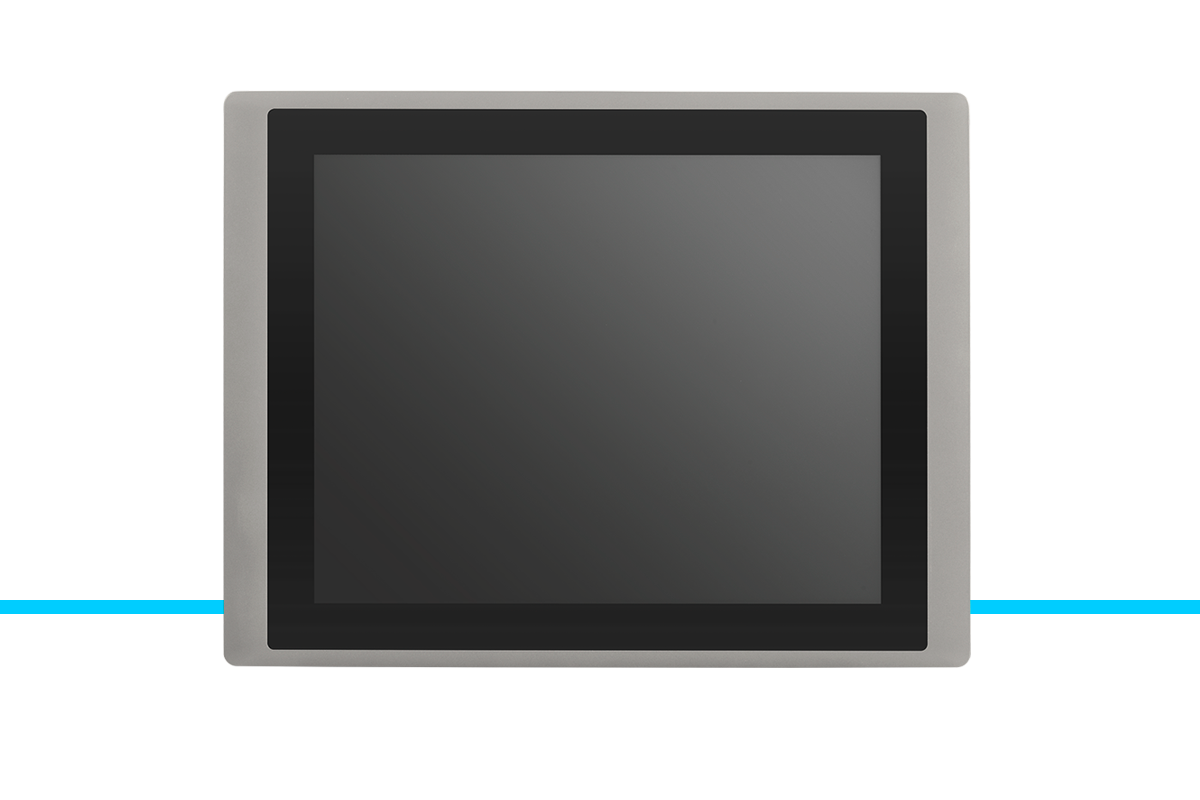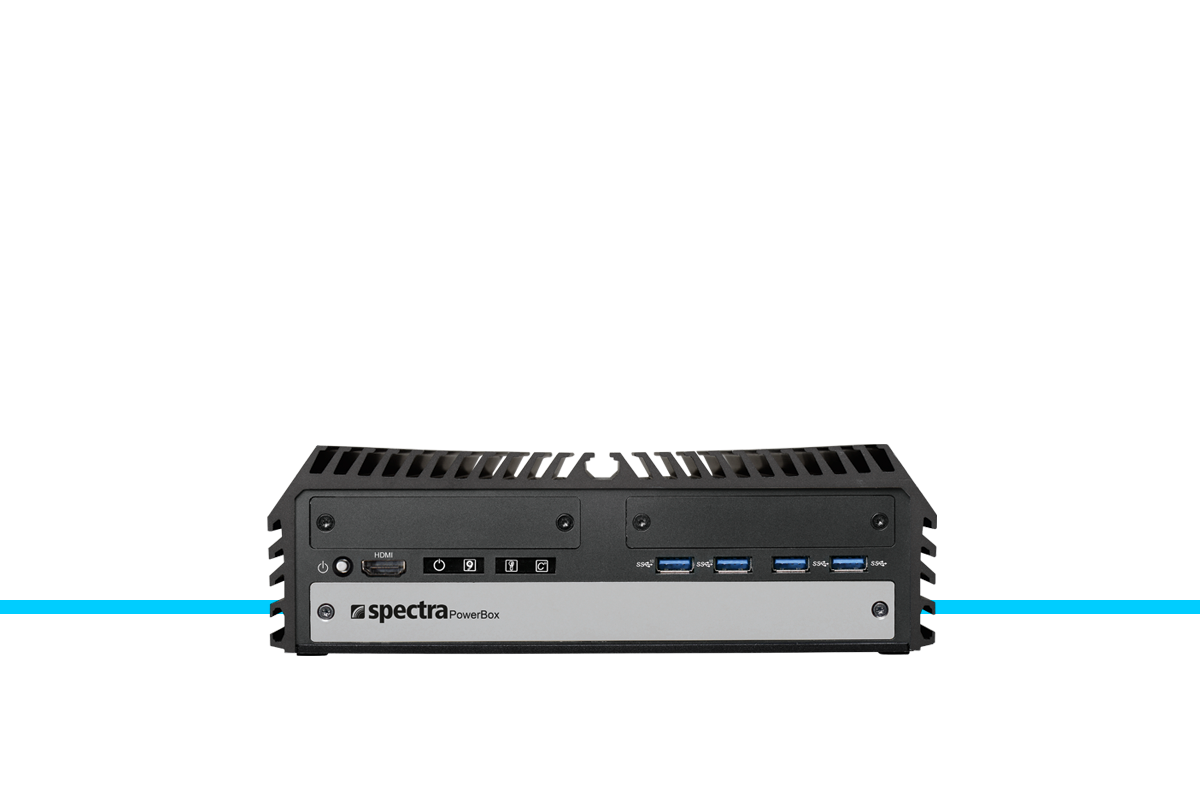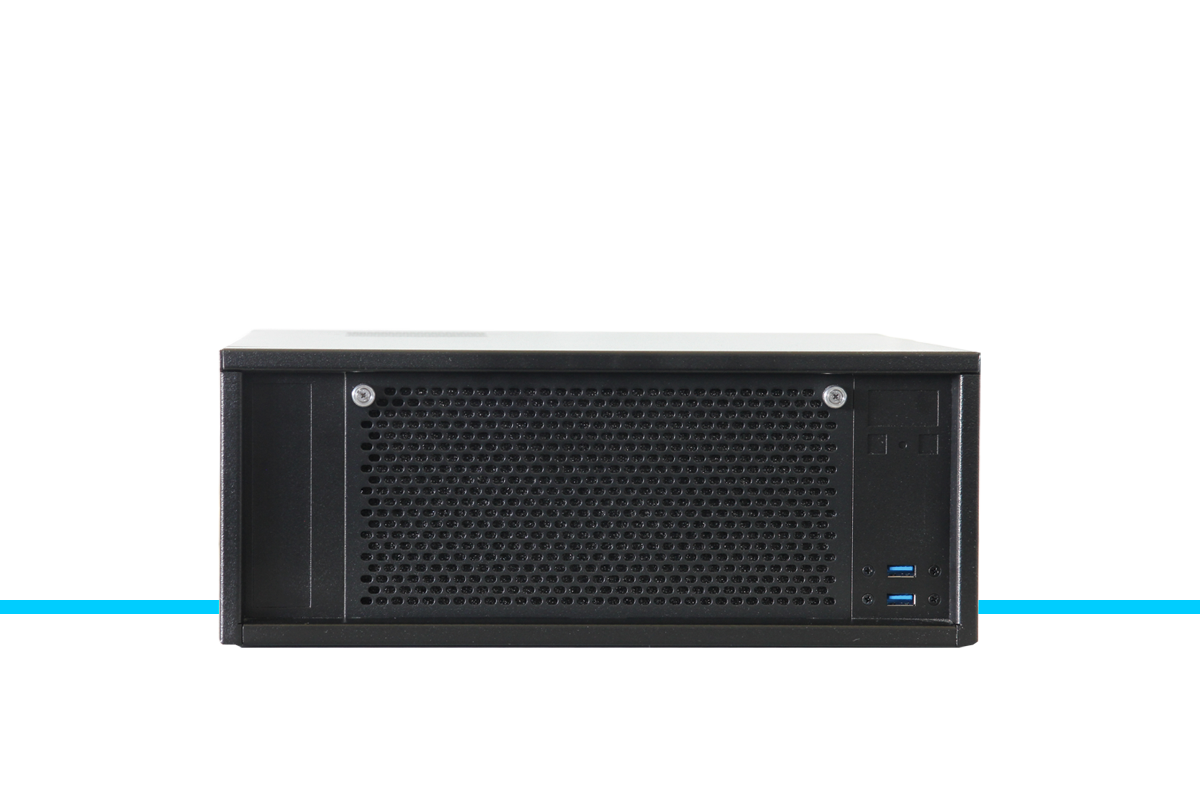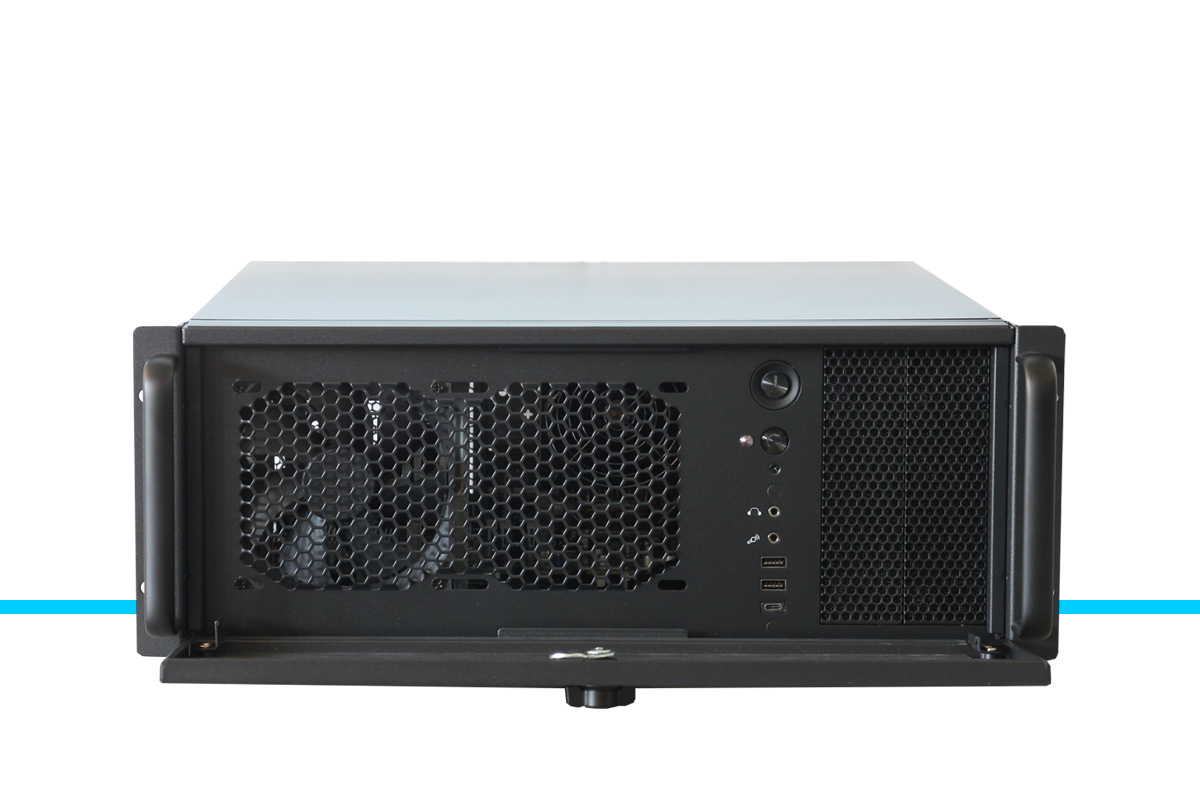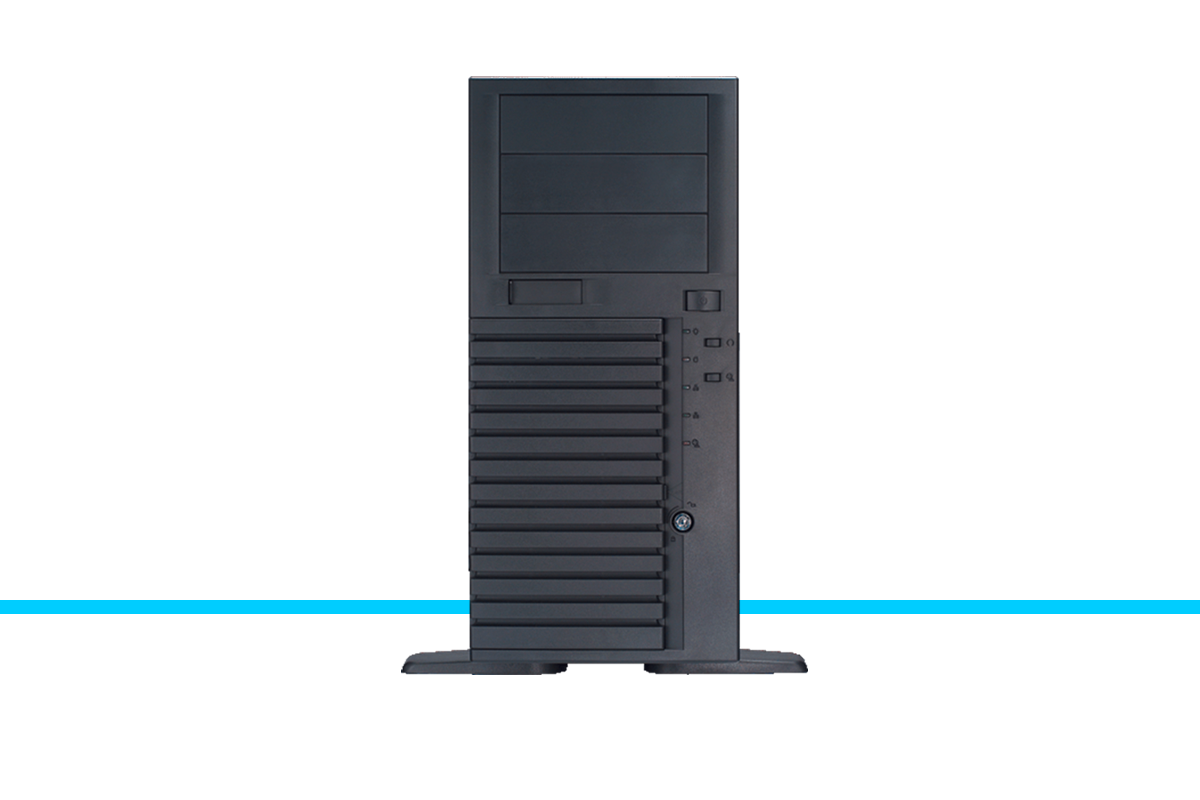What do I need to consider before buying an industrial PC?
Every manufacturing application is different. Every operating environment is different. A large number of different designs and system layouts are available to cover the wide range of industrial PC applications.
Technical and economic/organisational criteria are decisive in identifying the optimum system for the specific operating conditions.
The following criteria should be considered before purchasing or configuring an industrial computer:
- Design/version
- Environmental conditions
- Available space and installation situation
- Required performance
- Type of integration and expandability of the PC
- Long-term availability
What are the main types/models?
- 19" Rackmount PC: is usually required for installation in a 19-inch cabinet
- Mini PC: particularly compact and robust alternative for use directly on the machine, for example in control consoles, but installation on the DIN rail in the control cabinet is also possible
- Panel PC: robust industrial PC equipped with a touchscreen
What environmental conditions influence the choice of industrial computer?
- Extreme Temperatures or strong temperature fluctuations determine the cooling principle of the PC, e.g. whether with or without a fan
- High humidity requires special IP protection. Optimised, very tightly sealed housings and special filter devices in the cooling fans enable this protection.
- Vibrations and Shocks in the environment are countered with particularly robust housings and plug connections. In addition, moving mechanical components such as fans and hard drives should be avoided as far as possible.
- Magnetic fields or other electromagnetic interference require electrically sealed housings and interfaces that are specially protected against electrostatic discharge or even galvanically isolated.
Why is the installation situation so important when selecting an industrial PC?
The form factor and housing size depend on the installation situation of the industrial PC. If space is limited and the electronics have to be accommodated in an extremely small space, PCs for DIN-rail mounting and housings, which are generally used for embedded systems, are suitable.The installation situation also influences the heat dissipation options on the industrial PC.
What demands are placed on the industrial PC in terms of performance?
It is not possible to make a generalised statement about the performance of an industrial computer. For example, an industrial PC in automation usually manages with relatively low performance, as high-performance processors are not required to control industrial machines. In contrast, powerful processors and graphics solutions are required for process visualisation or image processing. The choice of processor and memory equipment depends on the areas of application.What are the requirements for the IPC in terms of interfaces and expandability?
Most industrial applications require additional plug-in cards (e.g. measuring cards, graphics cards, fieldbus cards). The connections, e.g. for monitors or PoE cameras, must also be considered when planning an industrial computer. The expansion slots and interfaces are defined accordingly.Does the industrial PC need to be available for the long term?
In most cases, the industrial PC is part of an overall solution. This solution, e.g. a complex machine, requires an investment in development and construction. It is essential for the profitability of this investment that the industrial PC can be supplied identically over a longer period of time. This requires the selection of appropriate components with long-term availability.What are the common software requirements and operating systems of industrial PCs?
The software of industrial PCs must fulfil various requirements. For example, one requirement is the simple integration of process peripherals, but this also includes long service lives without software errors or the processing of process data in real time.The most common operating systems in industry are Microsoft Windows and Linux. One advantage of Microsoft Windows is that a range of available software solutions and development tools can be utilised. Variants for industry, such as Windows 10 IoT, cater in particular to the requirements of industrial use.
The open source nature of Linux makes it possible to make your own modifications and optimisations, which can also be used to adapt the operating system to the relevant area of application.
What industrial PC services does Spectra offer?
At Spectra, we understand the term "services" to mean finding out your requirements and realising them in the best possible way. For example, we offer a wide range of customisations of industrial PC systems, extensive system tests, hands-on workshops, etc.You can find an overview of our services here
Customise an industrial PC according to your criteria
With the help of our configuration request form, you can easily define the most important technical requirements. Simply fill it in and send it to us.Our IPC experts will be happy to put together a suitable product for you from our components. Give us a challenge!
You can also get expert advice by calling +49 7121 1432-150





